 Committing (even emotionally) to an Urabuchi Gen series is always a queasy feeling. You’re leaping across that chasm hoping the ledge on the far side will hold, and even though it looks solid from where you’re standing you have a sick feeling it’s going to collapse when you need it most. Nevertheless, after three episodes I really want to make that leap. I’m buying what Urobutcher is selling so far, and Fujimori Masaya’s direction has a lot to do with that, too.
Committing (even emotionally) to an Urabuchi Gen series is always a queasy feeling. You’re leaping across that chasm hoping the ledge on the far side will hold, and even though it looks solid from where you’re standing you have a sick feeling it’s going to collapse when you need it most. Nevertheless, after three episodes I really want to make that leap. I’m buying what Urobutcher is selling so far, and Fujimori Masaya’s direction has a lot to do with that, too.
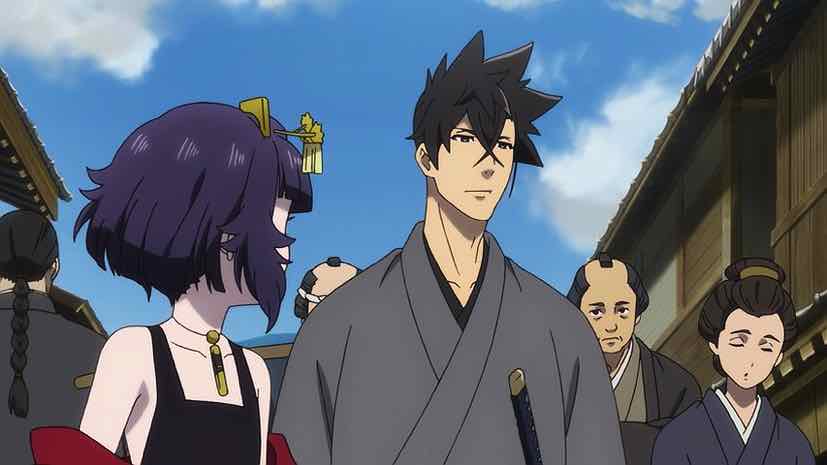 I really liked the dialogue-free pre-open with Raizou and Nio this week. The latter was showing the new guy around town – the parts of town people like Reben-ji are prone to hang out. Nio fails to raise a single tic from the fallen samurai’s impassive visage, but he still rather enjoys himself. Among the spots Nio chooses is a shantytown on a hillside (Nagasaki seems like nothing but hillsides – if you’ve been, you’ll know) where the derelict and destitute congregate. And there’s been an increase in their numbers, for reasons that will soon become clear.
I really liked the dialogue-free pre-open with Raizou and Nio this week. The latter was showing the new guy around town – the parts of town people like Reben-ji are prone to hang out. Nio fails to raise a single tic from the fallen samurai’s impassive visage, but he still rather enjoys himself. Among the spots Nio chooses is a shantytown on a hillside (Nagasaki seems like nothing but hillsides – if you’ve been, you’ll know) where the derelict and destitute congregate. And there’s been an increase in their numbers, for reasons that will soon become clear.
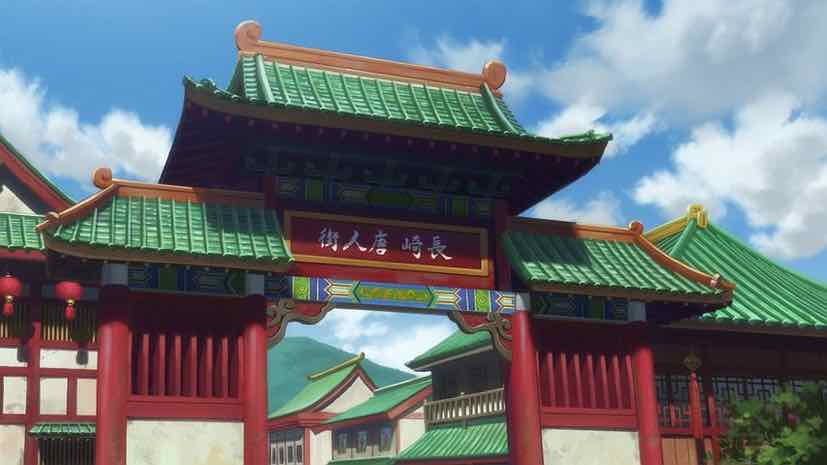 Nio and Souji (Hayama Shouta) get a good share of the focus this week, which more or less means all of the gang have been formally introduced. There’s still a lot we don’t know about all of them, mainly how they got to this strange point. Souji seems like a fairly routine layabout fond of drink and gambling – though he does have some skills somewhere between a ninja and Hisoka. As for Nio, he may be the most unsettling figure in the cast. His childish manner belies what appears to be a pretty bloodless conscience, someone completely inured to killing at a very young age.
Nio and Souji (Hayama Shouta) get a good share of the focus this week, which more or less means all of the gang have been formally introduced. There’s still a lot we don’t know about all of them, mainly how they got to this strange point. Souji seems like a fairly routine layabout fond of drink and gambling – though he does have some skills somewhere between a ninja and Hisoka. As for Nio, he may be the most unsettling figure in the cast. His childish manner belies what appears to be a pretty bloodless conscience, someone completely inured to killing at a very young age.
 That exchange between Nio and Yuuen about why Raizou was being admitted into the gang was pretty revealing, I thought – and it seemed clear Nio was asking those probing questions with himself in mind. My take on him is the lesson he’s taken from his life so far is that stronger and smarter is all that matters – survive by whatever means necessary. As for Souji, he’s horrified when the doc dumps Raizou in his room as an uninvited guest at his boarding house, as this is a guy who seems like he would seriously cramp his style. Ostensibly there are no rooms to be had in town, but it’s also a matter of keeping Raizou under wraps as much as possible, as his Satsuma killing spree attracted a lot of attention.
That exchange between Nio and Yuuen about why Raizou was being admitted into the gang was pretty revealing, I thought – and it seemed clear Nio was asking those probing questions with himself in mind. My take on him is the lesson he’s taken from his life so far is that stronger and smarter is all that matters – survive by whatever means necessary. As for Souji, he’s horrified when the doc dumps Raizou in his room as an uninvited guest at his boarding house, as this is a guy who seems like he would seriously cramp his style. Ostensibly there are no rooms to be had in town, but it’s also a matter of keeping Raizou under wraps as much as possible, as his Satsuma killing spree attracted a lot of attention.
 As for this week’s coin, it involves a local gangster named Sakata Shuusui (Hanawa Eiji), like all the other targets a real piece of work. As we meet him he’s framing an honest Buddha statue shopkeeper as an opium dealer because the man refused to pay protection (which Nio is fine with). Sakata also gets the man’s wife to plant the evidence, having turned her into an addict. And the shantytown is full of them, no doubt all attributable to Sakata. This is the second time we’ve seen evildoers frame innocents for the very crime they’re committing. Sataka has gotten powerful enough that the corrupt local magistrate Isarizawa Jinkurou (Koyasu Takehito) can no longer turn a blind eye to him, and drafts the Reben-ji to to the dirty job of taking him out.
As for this week’s coin, it involves a local gangster named Sakata Shuusui (Hanawa Eiji), like all the other targets a real piece of work. As we meet him he’s framing an honest Buddha statue shopkeeper as an opium dealer because the man refused to pay protection (which Nio is fine with). Sakata also gets the man’s wife to plant the evidence, having turned her into an addict. And the shantytown is full of them, no doubt all attributable to Sakata. This is the second time we’ve seen evildoers frame innocents for the very crime they’re committing. Sataka has gotten powerful enough that the corrupt local magistrate Isarizawa Jinkurou (Koyasu Takehito) can no longer turn a blind eye to him, and drafts the Reben-ji to to the dirty job of taking him out.
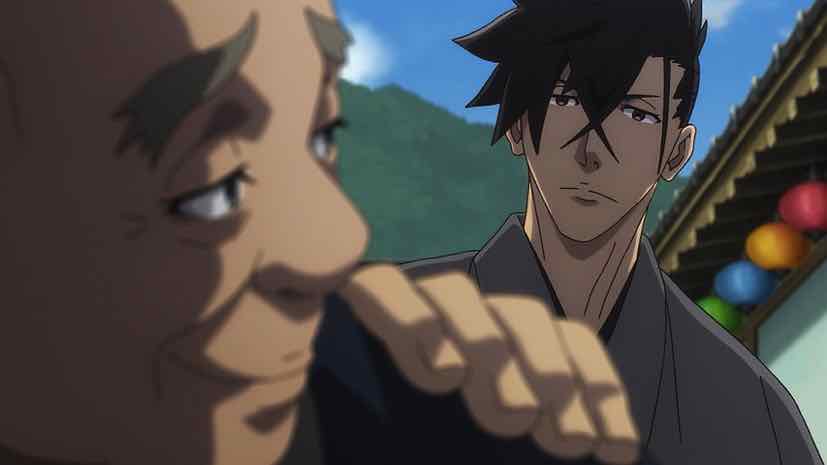 Isarizawa is another very colorful addition, a sybarite who bases himself out of the pleasure quarter and has a trio of Indian musicians with sitar and tablas (that has to be a rarity in Edo-period Japan) playing for him. He’s derisively called the “pajama patrol” (though not to his face, apart from by Yuuen), and a reminder of just how rocky the moral road the Reben-ji tread really is. All their victims thus far have certainly been evil SOBs, but there’s no sense of altruism to what these men (and boy) are doing. I feel as if I can see that realization in Raizou’s face, harboring no illusions that he’s on a path to redemption. He’s merely killing time until he leaves this world, doing the thing he’s best at.
Isarizawa is another very colorful addition, a sybarite who bases himself out of the pleasure quarter and has a trio of Indian musicians with sitar and tablas (that has to be a rarity in Edo-period Japan) playing for him. He’s derisively called the “pajama patrol” (though not to his face, apart from by Yuuen), and a reminder of just how rocky the moral road the Reben-ji tread really is. All their victims thus far have certainly been evil SOBs, but there’s no sense of altruism to what these men (and boy) are doing. I feel as if I can see that realization in Raizou’s face, harboring no illusions that he’s on a path to redemption. He’s merely killing time until he leaves this world, doing the thing he’s best at.
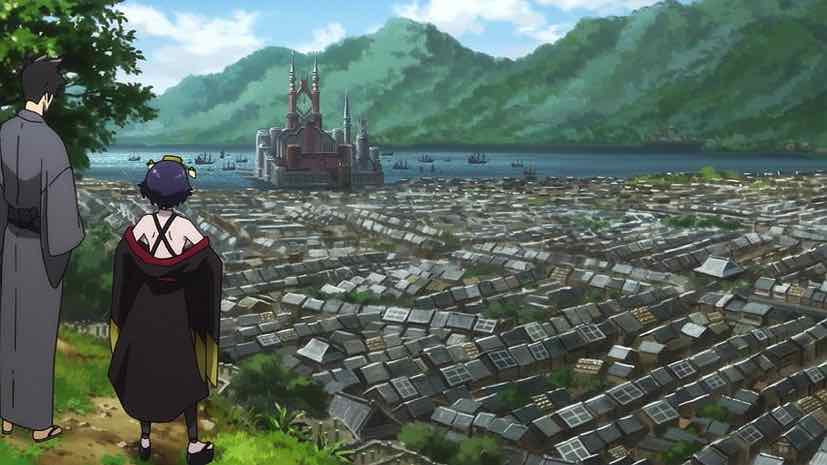 Souji volunteers himself and drafts Raizou for this mission. Upon arrival at Sakata’s villa – where Nio does a little recon but misses one in his head count – Souji sends Raizou in first, reasoning that he’ll be like a bull in a china shop and roust the pigeons for him to shoot with ease. But Raizou surprises him with moves that are much more assassin-like than samurai, proving how adept he is at learning his new trade. Rarely has the death of an evil character felt so unsatisfying – it’s obvious that these assassins are killing themselves just as surely as their victims, just a lot more slowly. But then that’s the essential pathos of many assassin tales – including perhaps the massively popular Hissatsu TV dramas that Revenger is apparently an homage to.
Souji volunteers himself and drafts Raizou for this mission. Upon arrival at Sakata’s villa – where Nio does a little recon but misses one in his head count – Souji sends Raizou in first, reasoning that he’ll be like a bull in a china shop and roust the pigeons for him to shoot with ease. But Raizou surprises him with moves that are much more assassin-like than samurai, proving how adept he is at learning his new trade. Rarely has the death of an evil character felt so unsatisfying – it’s obvious that these assassins are killing themselves just as surely as their victims, just a lot more slowly. But then that’s the essential pathos of many assassin tales – including perhaps the massively popular Hissatsu TV dramas that Revenger is apparently an homage to.


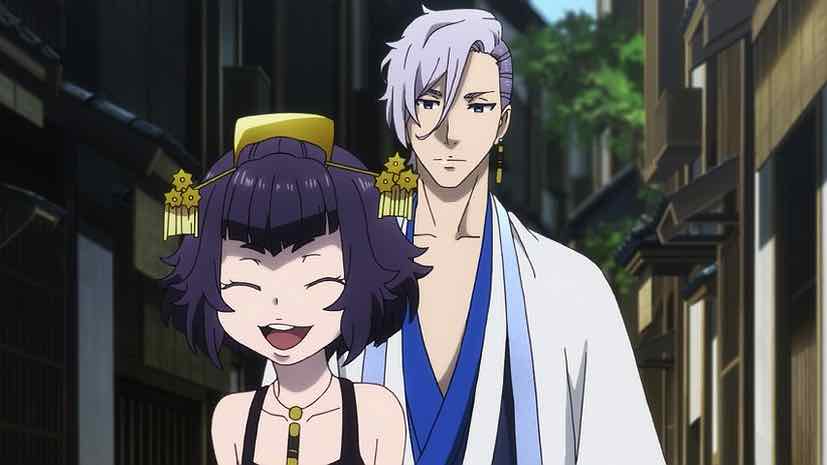


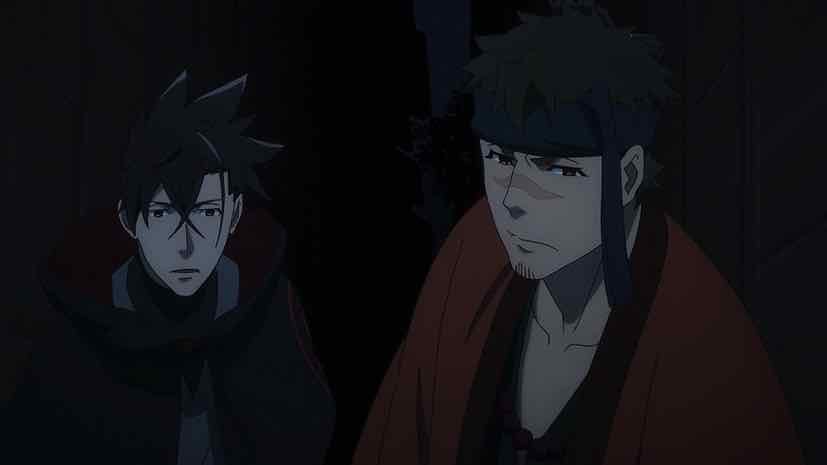
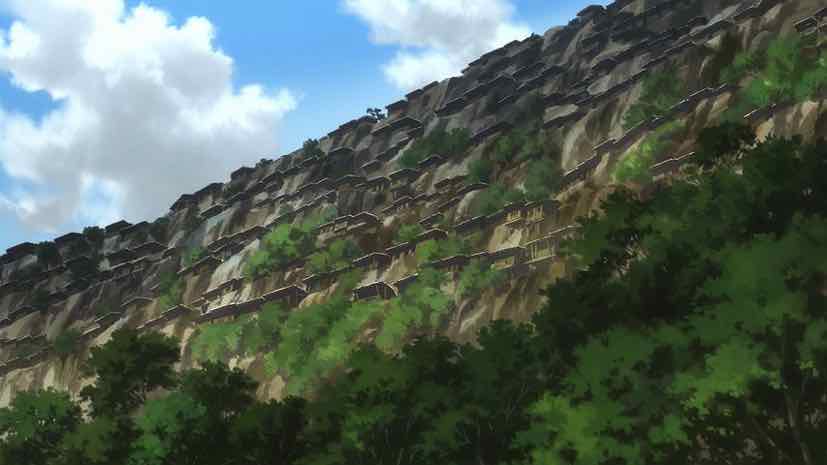


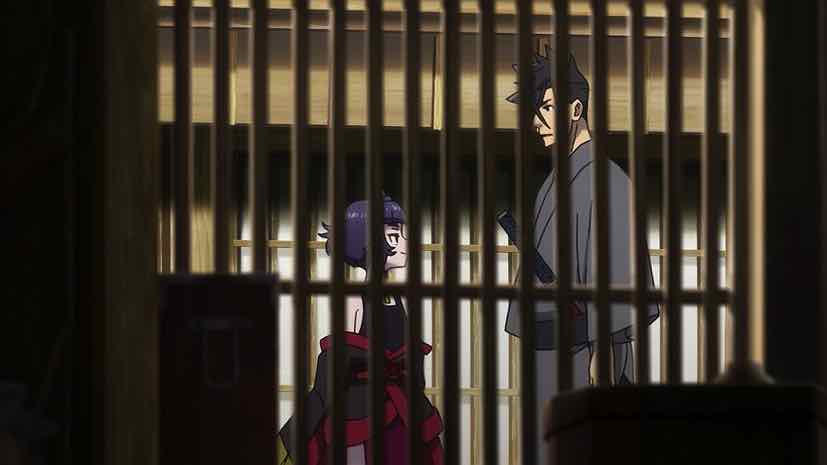
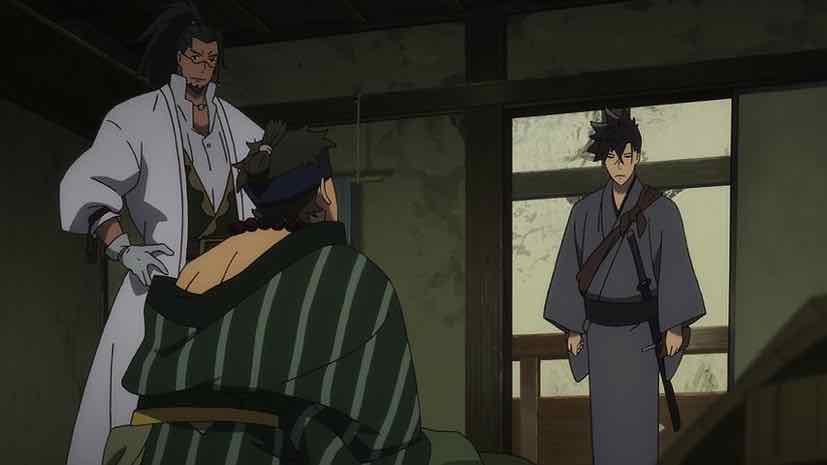
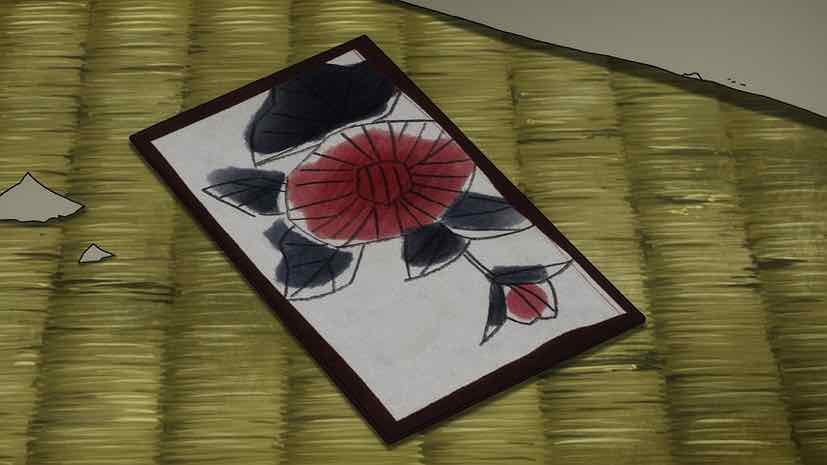
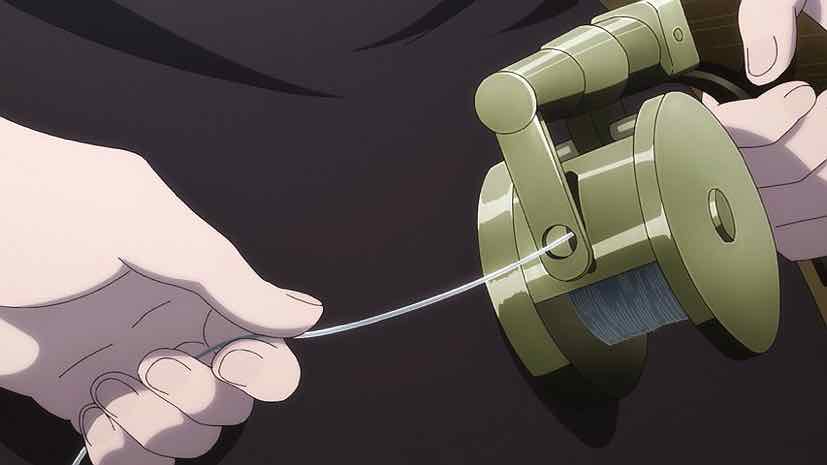
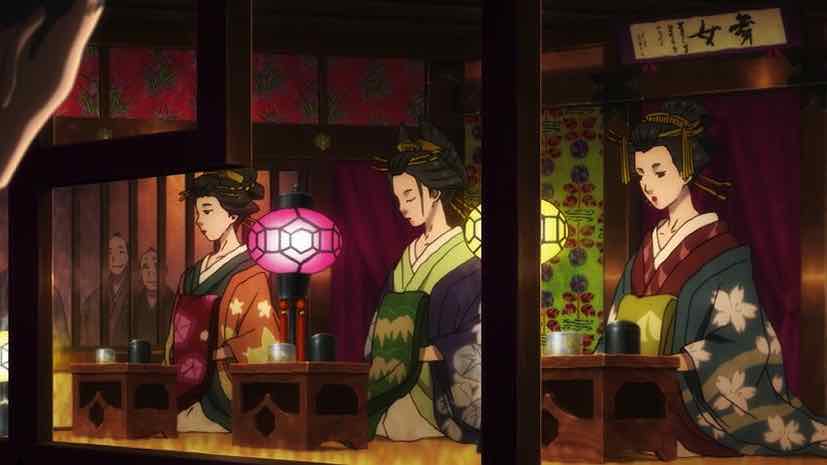
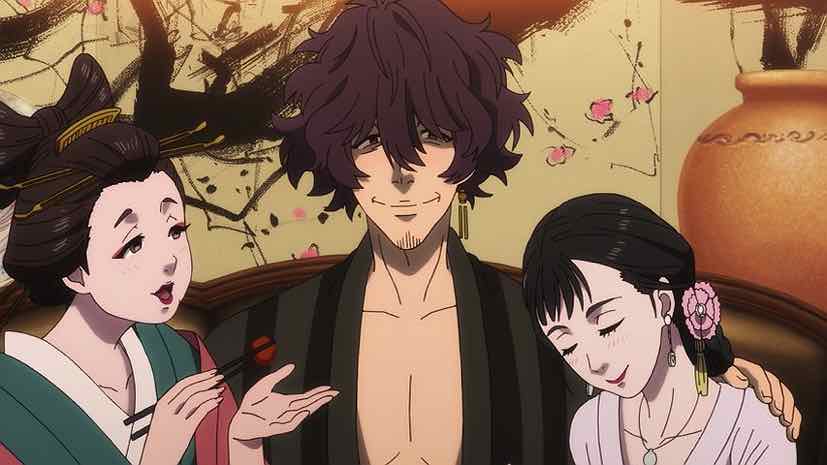

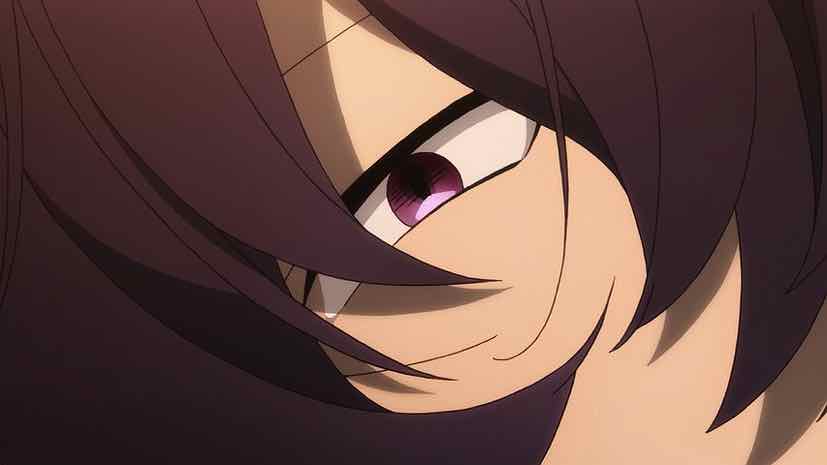
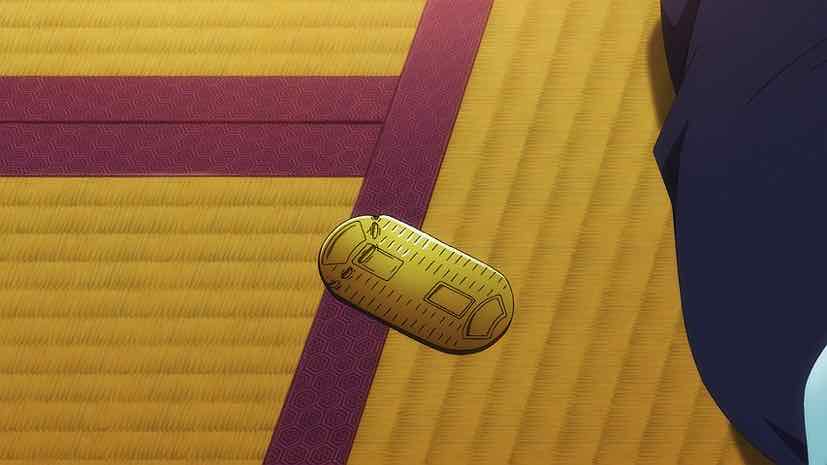
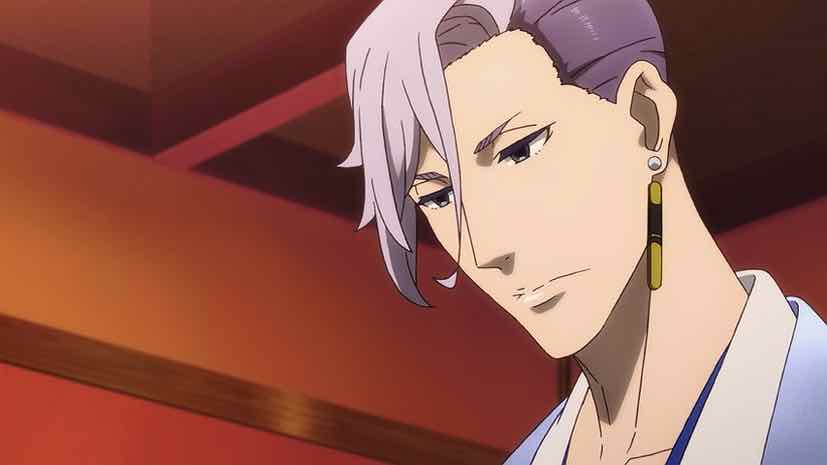
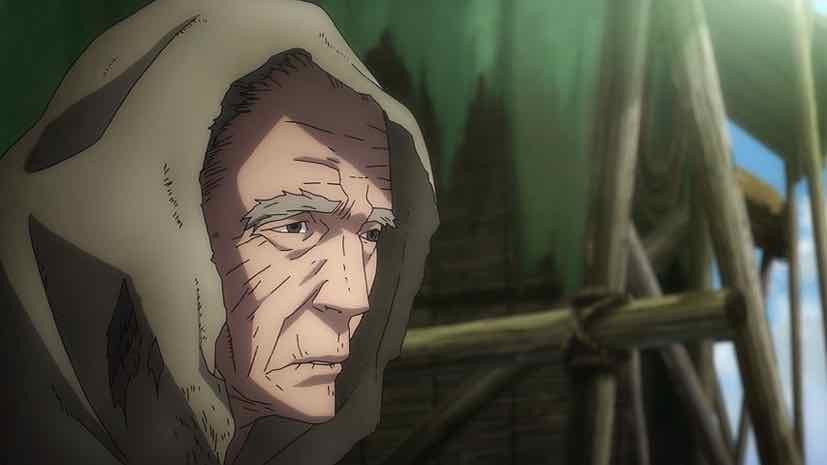
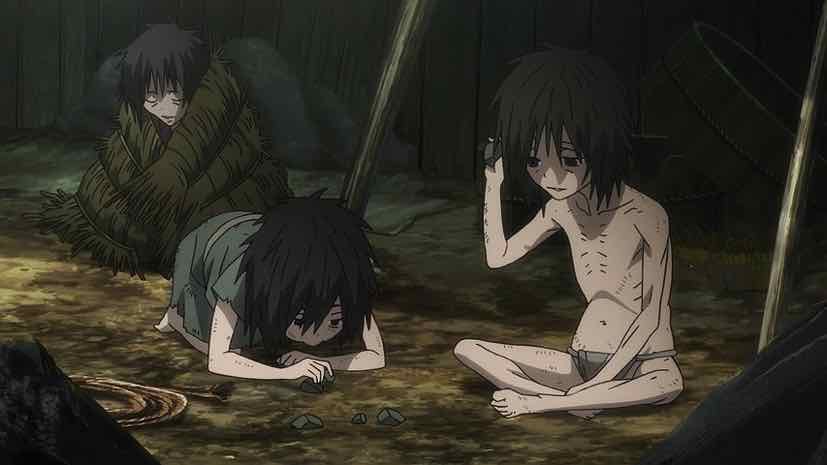
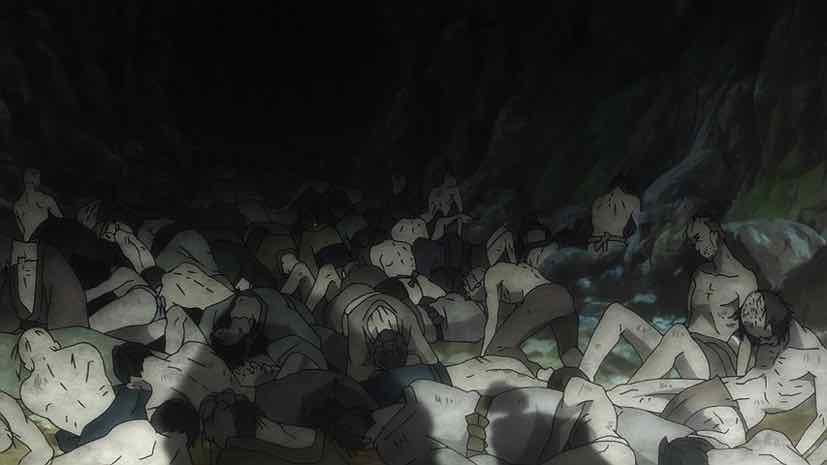
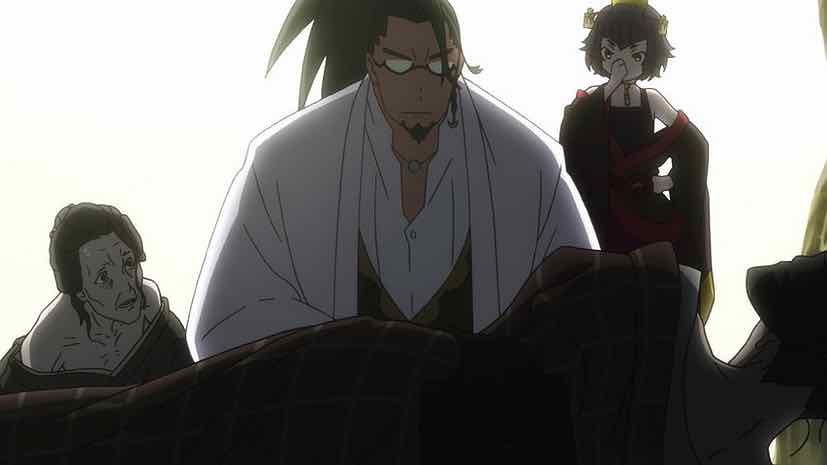
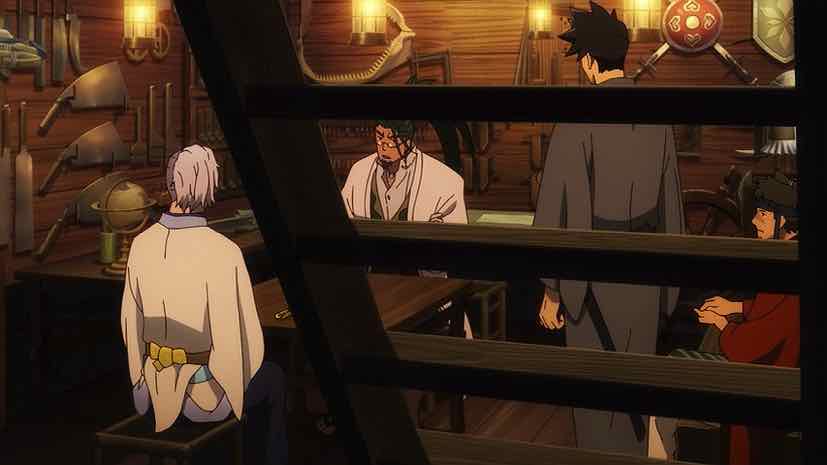
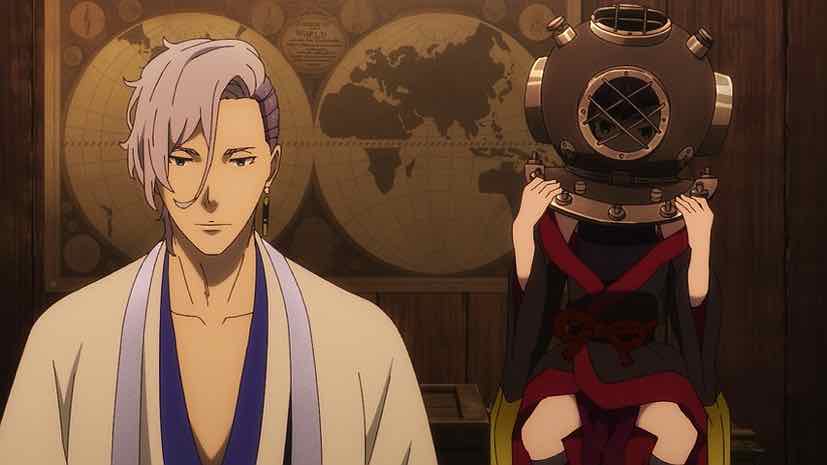

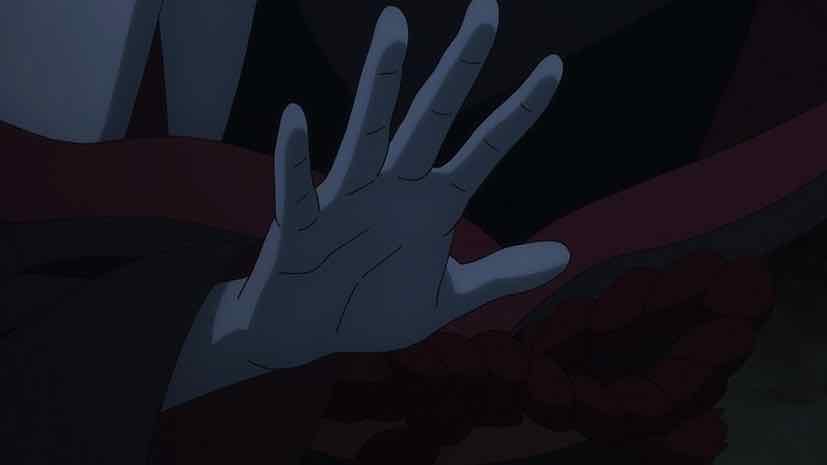

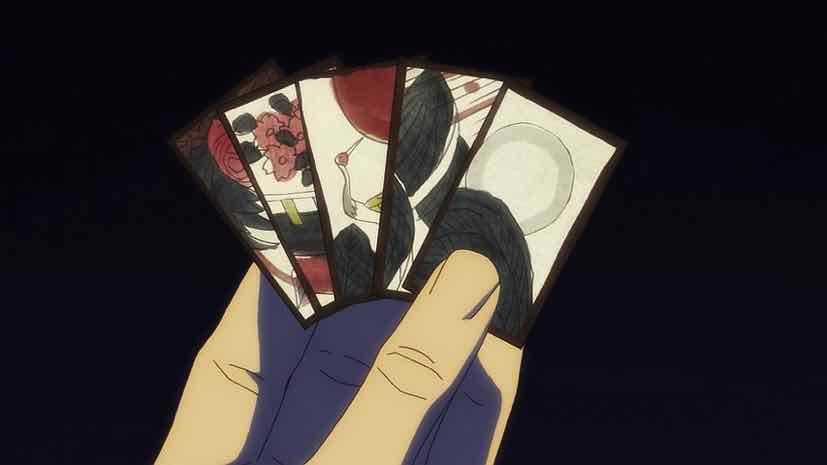
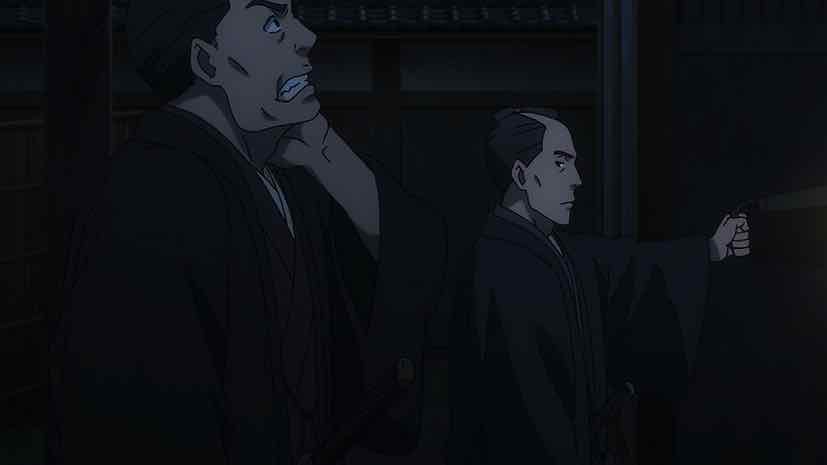
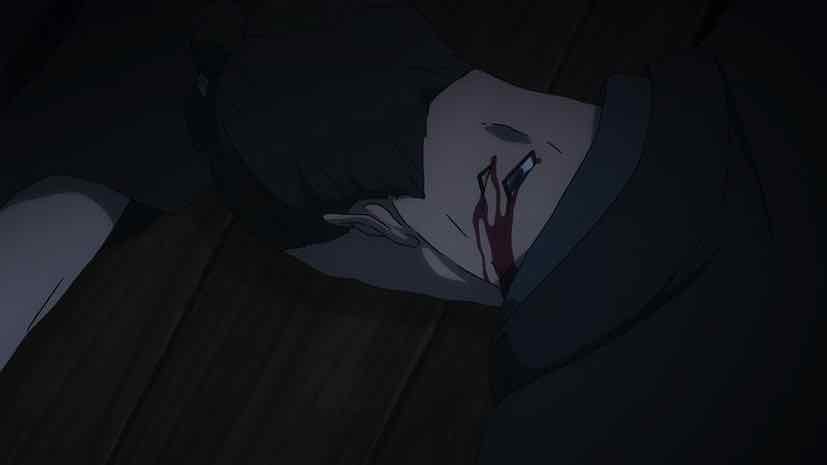

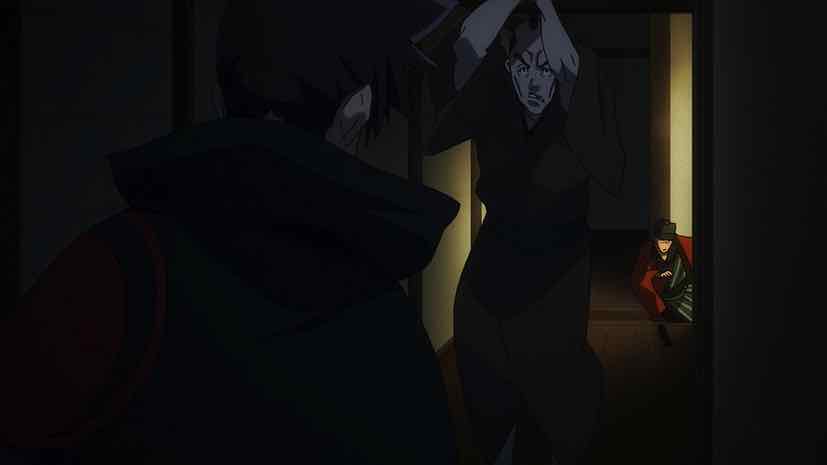
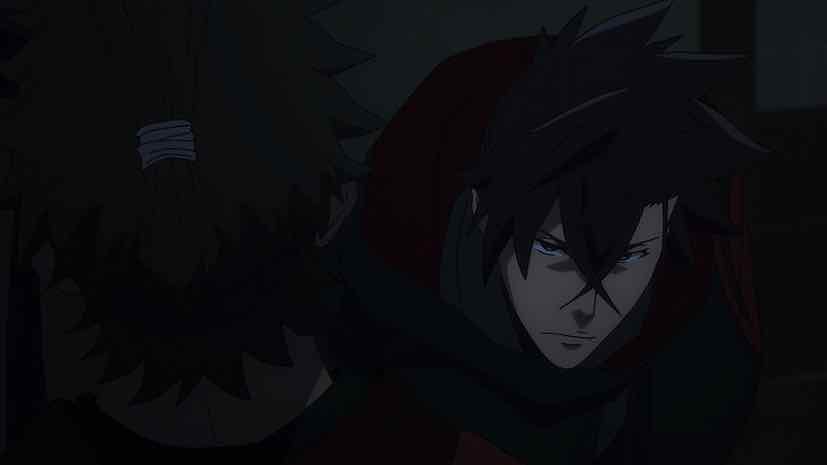

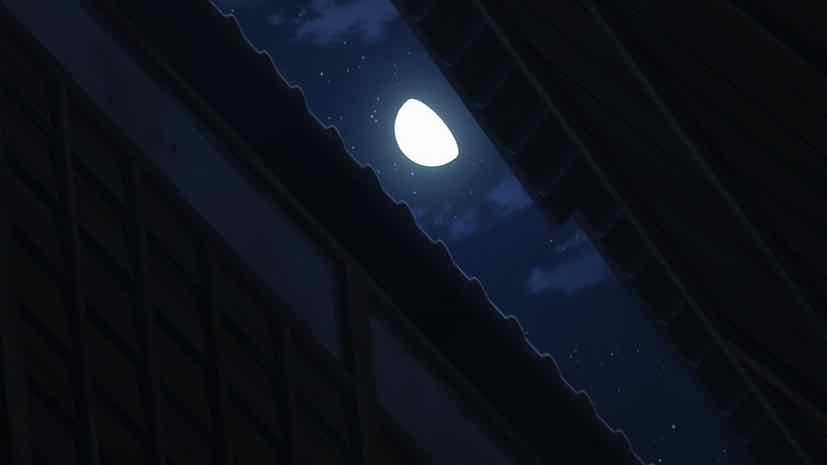
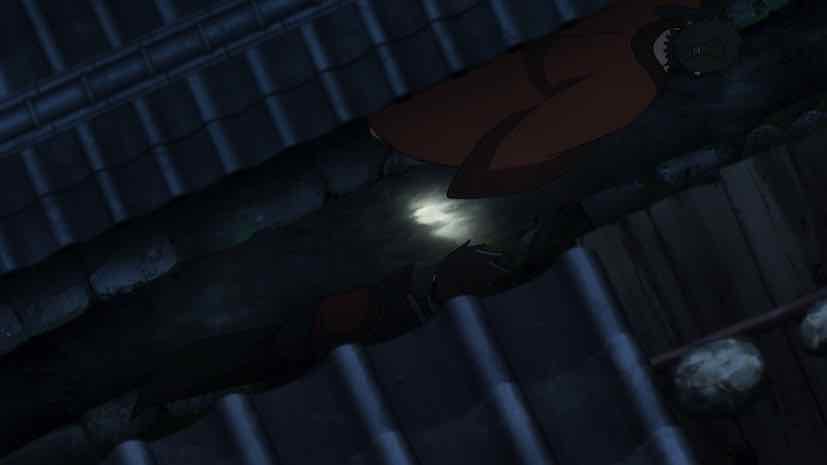


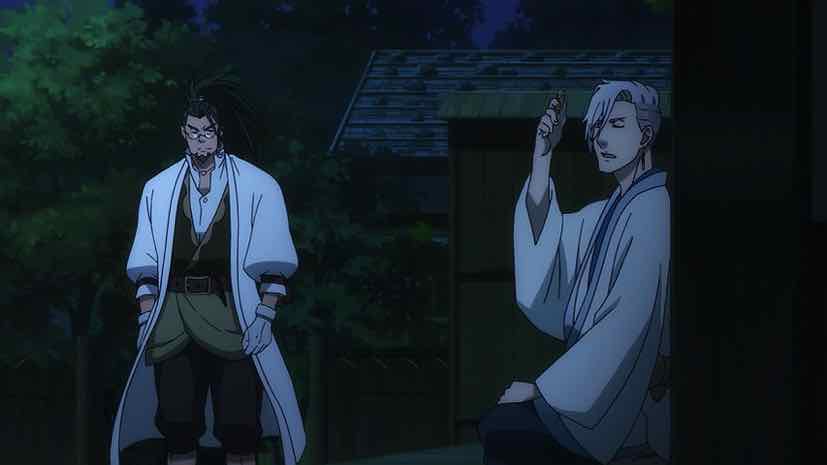
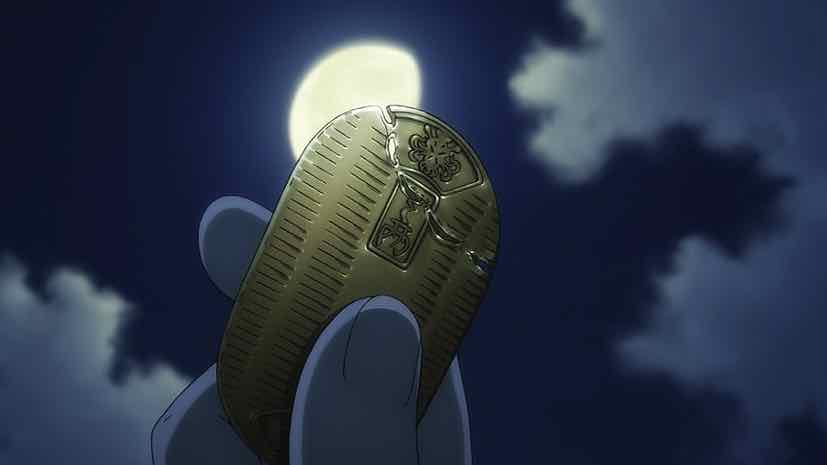
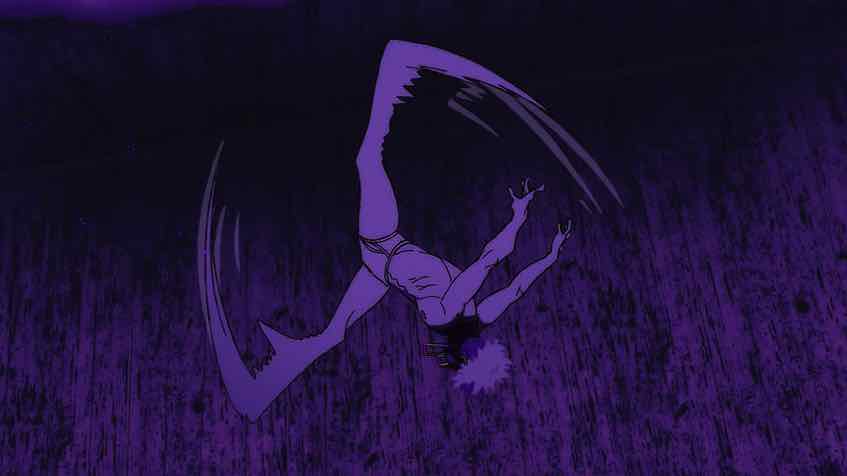
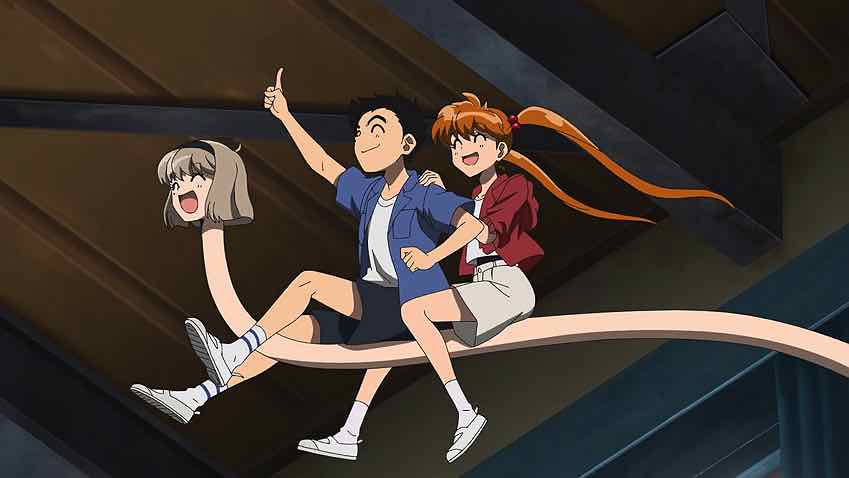
Joshua
January 20, 2023 at 11:55 pmDidn’t really think before about how this may be a homage to the Hissatsu dramas that Urobuchi probably grew up on. That kinda explains a lot about how this show is structured and told. But also there was another inspiration I felt was present here: namely his Taiwanese puppet series Thunderbolt Fantasy in how he writes character interactions, worldbuilding, and gory over-the-top action. It felt like he was taking his experience writing that series and translating it back to Japanese anime.
Nicc
January 21, 2023 at 6:42 amAfter this 3rd episode, I think this series is a keeper for me. Nio shows the new guy around town and I also liked how it didn’t include any dialogue as it wasn’t necessary. Showing instead of telling works well for this kind of scene.
It seems that the team still isn’t all that keen on Raizou being a new member, part of it being a (former) samurai and also how he’s a wanted man. Raizou’s stoicism was highlighted in this episode too with neither Nio and Souji being able to get a rise out of him, something which especially perturbs Souji.
We get more of the underbelly of this town, with plenty of corruption to go around. The mission with Raizou and Souji goes smoothly, even with an extra target to dispose of. It’s kind of amusing how he’s got the most “normal” method of killing. Yuuen uses gold leaf, Nio uses a kite with glass strings, the Doc uses a 20th century compound bow, and Souji uses cards. Meanwhile, Raizou just has his daisho, how ordinary…